Yale Environment 360
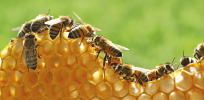
427,000 global deaths a year? Study claims bee decline stunts yields of fruits, vegetables and nuts
The global decline of bees and other pollinators is stunting yields of fruits, vegetables, and nuts. Scientists estimate that the ...

Climate change is making water saltier and killing crops. Genetic engineering offers possible solution
There is a surge in saltiness across all inhabited continents today. Climate change is far from the only cause. Deltas ...
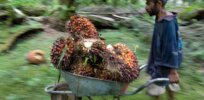
Reversing deforestation and biodiversity loss: Can synthetic palm oil help protect the world’s tropical forests?
The world’s cheapest and most widely used vegetable oil, palm oil production is a primary driver of deforestation and biodiversity loss in ...
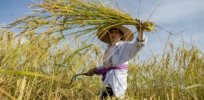
As temperatures rise, gene editing helps climate proof the global food supply
“The largest single global change that threatens food security is high temperature,” said Donald Ort, a professor of plant biology ...
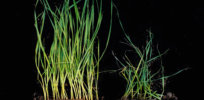
Can wild seeds from Syria save American wheat from climate change?
When a team of researchers set loose a buzzing horde of Hessian flies on 20,000 seedlings in a Kansas greenhouse, ...

Plant ‘vaccines’, CRISPR gene editing could increase crop yields and reduce pesticide use
When European researchers recently announced a new technique that could potentially replace chemical pesticides with a natural “vaccine” for crops, ...

Should we use gene editing to save obscure tree ‘with no commercial value’?
The growing forest health crisis is forcing scientists, conservationists, and the public to answer some of conservation biology’s thorniest questions ...
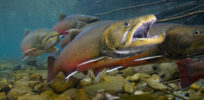
‘Environmental DNA’ tests could aid in management of commercial, endangered fish
Environmental DNA, or eDNA, is at the center of a brand new kind of fish and wildlife biology, and it ...
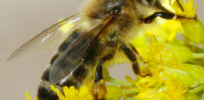
Rising CO2 levels makes pollen less nutritious for bees, may contribute to colony collapse
The GLP aggregated and excerpted this blog/article to reflect the diversity of news, opinion and analysis. . . . [S]cientists ...
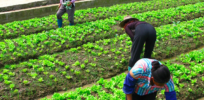
“Sustainable intensification” in farming vs the alternative: Food shortages and unrest
The GLP aggregated and excerpted this blog/article to reflect the diversity of news, opinion and analysis. For researchers trying to ...

Can GMO super corals meet the challenge of global warming?
With the world’s coral reefs increasingly threatened by warmer and more acidic seas, scientists are selectively breeding corals to create ...
GM mosquitoes that could reduce illness in Florida Keys face public opposition
A U.K.-based company, Oxitec, has altered two genes in the Aedes aegypti mosquito so that when modified males breed with wild females, the ...
Genetically altered rice variety yields for years without replanting
Ten thousand years ago, China’s ancient inhabitants harvested the grains of wild rice, a perennial grass growing up to 15 ...
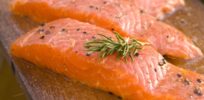
As final approval of GM salmon nears, debate heats up
In an online debate, AquaBounty president Elliot Entis discusses his company's GM salmon with author Paul Greenberg, a critic of ...

